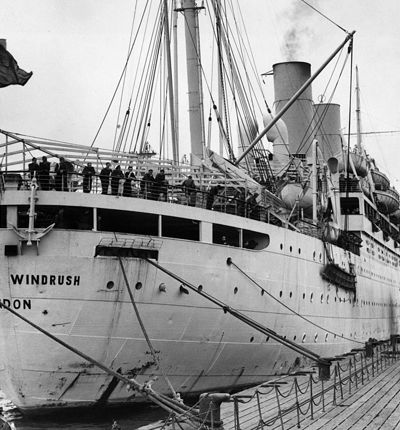
Betrayal of the 'Windrush generation'
Human rights lawyer Jamie Beagent says the Home Office could face a number of legal challenges.
Posted on 20 April 2018
As the heads of the Commonwealth continue their meeting in London today, public anger over how the UK Government has treated many of those who came to the UK from across the Commonwealth to help rebuild the country in the aftermath of a World War has reached deafening levels with calls for a public inquiry into the government’s handling of the issue.
Britain was on its knees economically after the Second World War. The arrival of HMT Empire Windrush at Tilbury Docks in June 1948, carrying Citizens of the United Kingdom and Colonies from Jamaica, signalled the start of the post-war revival in which the hard work of new arrivals proved vital.
Now those very same people and their families, having battled for acceptance and equality for over a generation, are suffering the repercussions of Theresa May’s dystopian ‘hostile environment’ policy towards immigrants.
People who were invited, and have lived and worked here contributing to society and making the UK what it is today, are now finding their very right to be here questioned. They may be denied access to core services, healthcare and benefits. They may be refused rental opportunities or denied a bank account. They may even be detained and deported. All because they have not at some stage in the past formally adopted UK citizenship – a right that most had but which, in many cases, they did not realise was necessary to exercise.
It would be comforting to think that this is all a recent development, quickly attracting the ire of the British people and responded to by the government in its apology and promise of action – democracy in action.
However, that is far from the full picture. What has become known as the hostile environment policy has formed part of government plans for a number of years and is only the culmination of decades of increasingly draconian immigration law and policy. When many of the Windrush generation arrived there was no need to apply for any form of leave to reside in the UK. Over the years more and more barriers to immigration have been put in place and increasingly punitive legislation and policy adopted. The Home Office is now deeply ingrained with a culture of disbelief – if you look or sound different, you are an illegal immigrant unless you can prove otherwise.
As the Home Office itself has admitted, it does not know the full extent of the impact of its policies and enforcement action on the Windrush generation. It does not know how many have been wrongly deported from the UK, let alone how many lives have been ruined through internal alienation, denial of access to services and loss of liberty.
If it transpires that significant numbers of individuals have been wrongly deported there is a strong moral case for reparations to be paid to their countries of origin –most will have spent their active working lives building the UK economy only to be deported as pensioners to be supported by their state of origin.
However, individuals and families who have suffered wrongly as a result of the hostile environment – whether that be through deportation, detention, restrictions on movement and location, deprivation of benefits or denial of access to health and other services – should be able to enforce their rights. If there are appropriate grounds the Home Office can expect a raft of claims if the scale of the problem is as large as it appears to be.


